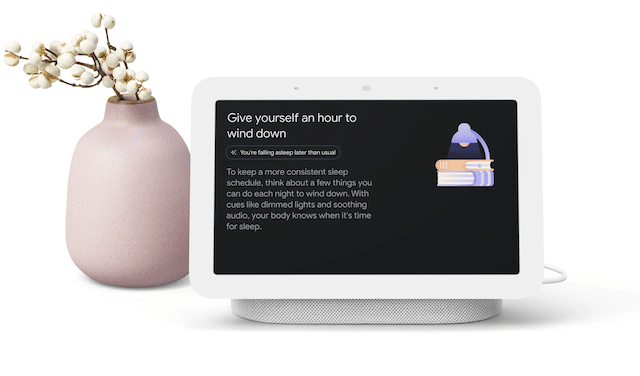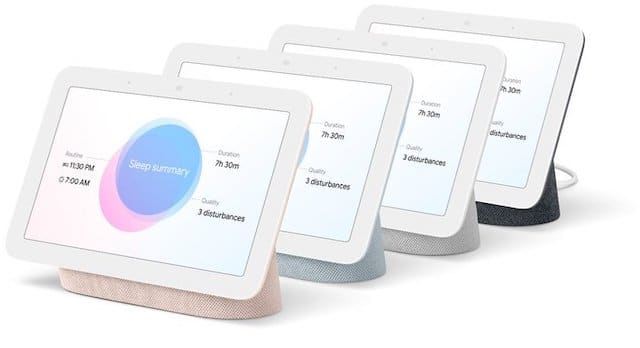Google's Nest Hub Gen 2 is all about that bass -- and tracking your sleep

Google's Nest Hub is an integral part of my home. It is on my living room table where it serves as a clock, but it is so much more than that. Hub is in "earshot" of my kitchen too, so I use it all the time for setting timers while cooking. When I take a nap on the couch, it is my alarm clock. Oh, and when I need to turn the lights on (or off), it does that for me too. All of these actions are done by voice -- "Hey, Google."
One of the reasons that I chose Nest Hub is for privacy -- it doesn't have a camera like some other hardware assistants do. Today, Google finally announces the second generation Nest Hub, and I am happy to say it also does not have a camera. With that said, it can optionally watch you sleep. Wait, what?
OK, technically it doesn't watch you in the traditional sense -- like I said, there is no camera. But its "Sleep Sensing" does utilize radar, microphones, and other sensors to track your quality of sleep. It can monitor your restlessness and snoring, for instance, and then provide daily feedback. I love this concept, as I hate wearing a smartwatch or smart band to bed for sleep-tracking. Not to mention, wearables need to be charged. Nest Hub Gen 2 effortlessly tracks from your nightstand.
"Sleep Sensing uses Motion Sense (powered by Soli low-energy radar technology) to analyze how the person closest to the display is sleeping, based on their movement and breathing — all without a camera or wearable. Sleep Sensing can also detect sleep disturbances like coughing and snoring or the light and temperature changes in the room with Nest Hub’s built-in microphones and ambient light and temperature sensors, so you can better understand what’s impacting your sleep," says Ashton Udall, Product Manager, Google Nest.
Udall further says, "Every morning you’ll receive a personalized sleep summary on your display, or you can view your sleep data anytime on the Nest Hub by asking, 'Hey Google, how did I sleep?' Sleep Sensing can also connect to your Google Fit app on Android and iOS devices, so you can see your sleep summary alongside your other health and wellness information."
Of course, Sleep Sensing is not the only new feature. If you, like me, use the Nest Hub for listening to music (I use it for SiriusXM), you will appreciate the increased bass. In fact, the search giant says Nest Hub Gen 2 has 50 percent more bass than its predecessor.
The aforementioned radar isn't just for sleep-tracking either -- it enables "quick gestures." This essentially lets you interact with the device by waving your hand in front of the screen -- no need to actually touch it. For instance, you could pause or play music by putting your palm towards it.

The second generation Nest Hub can be pre-ordered from Google here. It should officially hit stores on March 30. Nest Hub 2 costs just $99, which is the same price as the screen-less Nest Audio. It can be had in your choice of four colors -- Chalk, Charcoal, Mist, and Sand.
